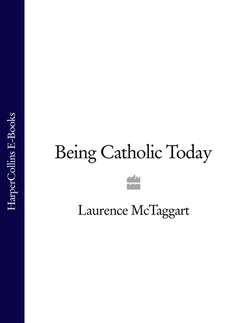Читать книгу Being Catholic Today - Laurence McTaggart - Страница 20
So who gets it?
ОглавлениеBut, if you are inclined to agree with this, be careful. Jesus has another uncomfortable truth to tell us:
Two men went up to the Temple to pray, one a Pharisee, and the other a tax collector. The Pharisee stood there and said this prayer to himself, ‘I thank you, God, that I am not grasping, unjust, adulterous like the rest of mankind, and particularly that I am not like this tax collector here. I fast twice a week; I pay tithes on all I get.’ The tax collector stood some distance away, not daring even to raise his eyes to heaven; but he beat his breast and said, ‘God, be merciful to me, a sinner.’ This man, I tell you, went home again at rights with God; the other did not. For everyone who exalts himself will be humbled, but the man who humbles himself will be exalted.
Luke 18:9–14
The point at present is that, even if the tax collector had not said his truly humble prayer, the Pharisee is at fault. His prayer is superficially humble, in that he does thank God for the gifts within him. But it is only half the truth. In fact he uses his virtue as a condemnation of the tax collector. Any demand on our part that God be fair, and punish those evil-doers as they deserve, either condemns us to the same fate (be honest!) or puts us in the shoes of the Pharisee, whose prayer of thanksgiving was counted as sin. So maybe Hitler is in the hottest part of hell. But it is not for us to say that; unless, perhaps, you want to join him.
Let us assume, therefore, a certain resistance to the idea of an eternal sin, and move forward to what Jesus might mean by it. The idea itself is not hard to understand. A woman discovers that her husband has been having an affair with her best friend for the last ten years. How does she react? What is the next step? It depends, of course, on her, her husband, and their relationship. She might just walk out. She might confront him and threaten divorce unless he stays faithful to her. She may file for divorce and seek a punitive financial settlement. She might take his shotgun and murder them both. She may do nothing at all, turn a blind eye, or even collude for the sake of children, reputation or security. Most people, though, would understand if she felt that life could not be as it was before, however much he repents or makes it up to her. A basic trust has gone, and the slate will never again be clean.
We have nearly all had close relationships that have broken up – often for some reason we do not really know – or just drifted apart. Young couples sometimes insist that they are splitting up in order to ‘stay good friends’. Sometimes they can, but usually they don’t. Most of us have had the horrible experience of saying something that really lost somebody’s trust; even without meaning to, the wounding thing is out. It can take a long time to rebuild, and the foundation is never what it was, wish as we may. Human life is full of eternal sins, clocks that will not go back. In contemporary Britain, some criminal offences are eternal in the sense that once committed, they can never be forgotten. Most people agree, for example, that paedophiles may be punished for seeking to work with children. Killers released early on parole sometimes have to be protected from the vengeful public. It seems that human society, to protect itself, has to cast some of its members into the outer darkness.
If the idea of an eternal sin makes some sense, the claim that in the sight of God there are points of no return perhaps does not. Take the maltreated and deceived wife. What if she had a perfect love for her husband? She might know him very well, understand some fact of his character or history that made him unable to cope with fidelity. She might realize how much he needed her there to return to. She might reflect that no husband is ideal, and put the blame on her friend. In other words, she might do all the things we would expect of the loving Father. God is love. He sees our weakness, understands its roots, knows what we can and cannot help. He notes our attempts to repent, and stands, like the father in the parable of the Prodigal Son, on the road waiting for us. He knows we are fallen, none better, and he knows we are tempted by a former angel of light. And did he not wipe it all away in the death of his Son?
